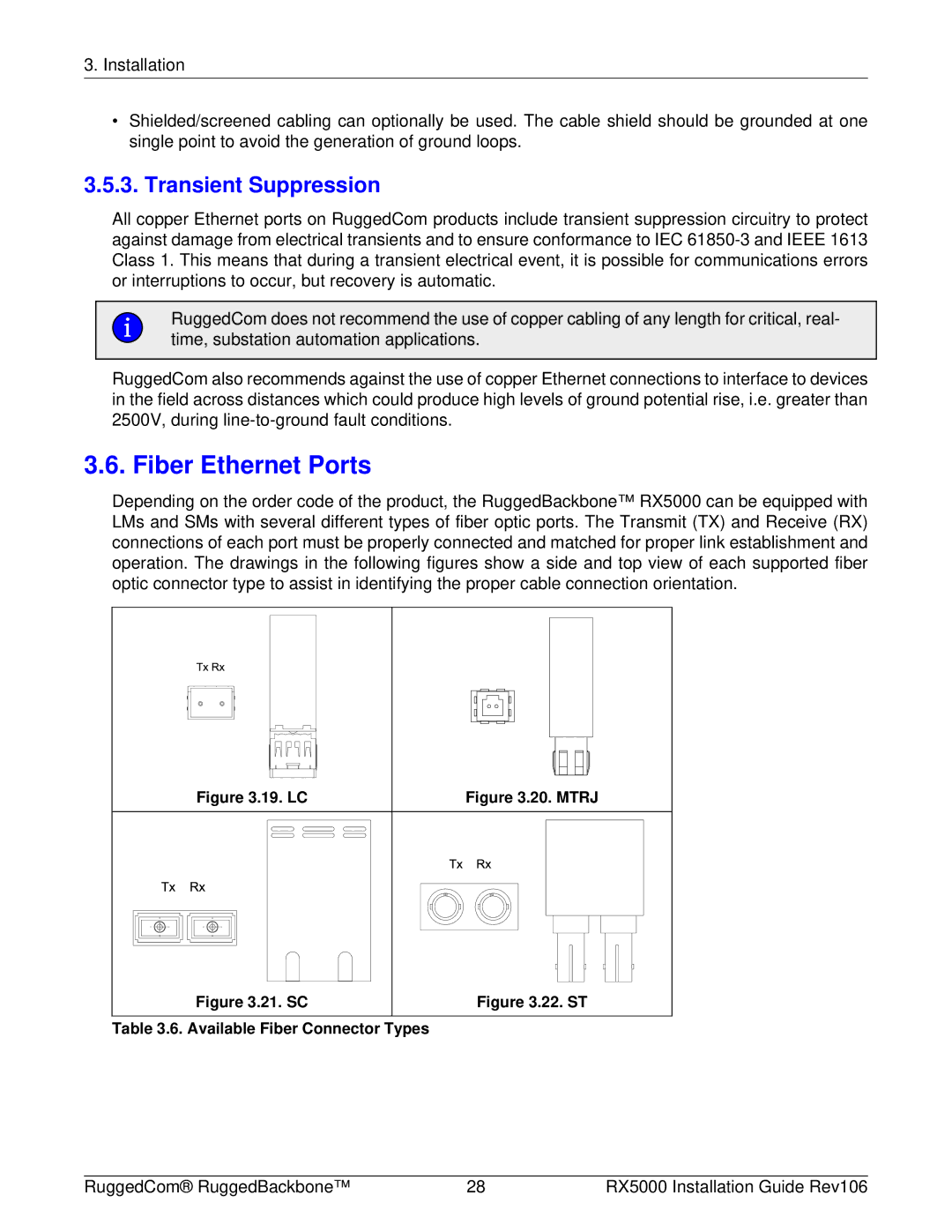
3. Installation
•Shielded/screened cabling can optionally be used. The cable shield should be grounded at one single point to avoid the generation of ground loops.
3.5.3. Transient Suppression
All copper Ethernet ports on RuggedCom products include transient suppression circuitry to protect against damage from electrical transients and to ensure conformance to IEC
RuggedCom does not recommend the use of copper cabling of any length for critical, real- time, substation automation applications.
RuggedCom also recommends against the use of copper Ethernet connections to interface to devices in the field across distances which could produce high levels of ground potential rise, i.e. greater than 2500V, during
3.6. Fiber Ethernet Ports
Depending on the order code of the product, the RuggedBackbone™ RX5000 can be equipped with LMs and SMs with several different types of fiber optic ports. The Transmit (TX) and Receive (RX) connections of each port must be properly connected and matched for proper link establishment and operation. The drawings in the following figures show a side and top view of each supported fiber optic connector type to assist in identifying the proper cable connection orientation.
Figure 3.19. LC
Figure 3.20. MTRJ
Figure 3.21. SC | Figure 3.22. ST |
Table 3.6. Available Fiber Connector Types |
|
RuggedCom® RuggedBackbone™ | 28 | RX5000 Installation Guide Rev106 |
